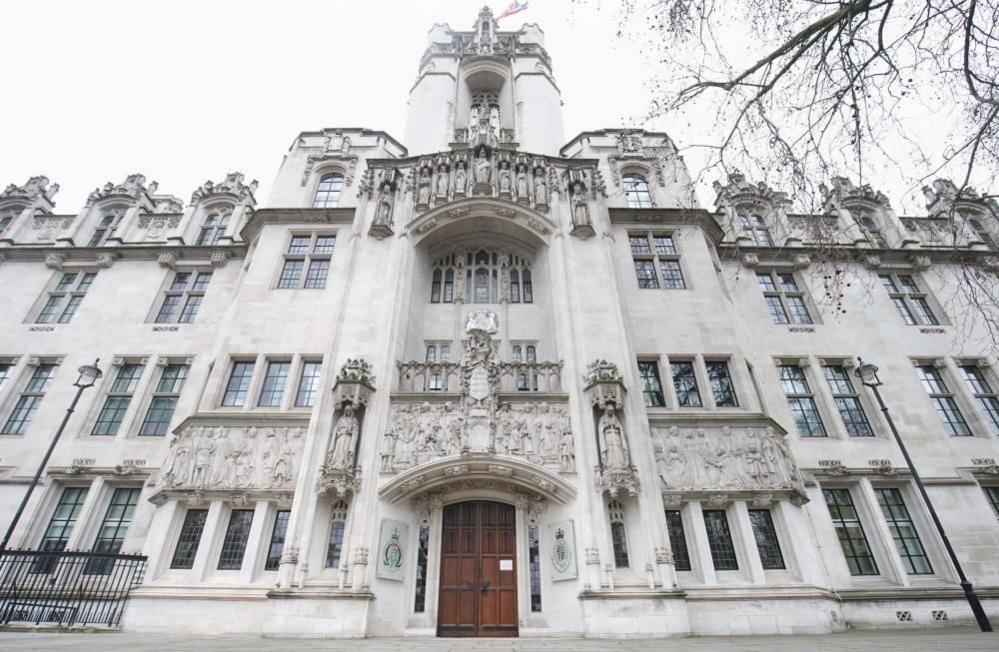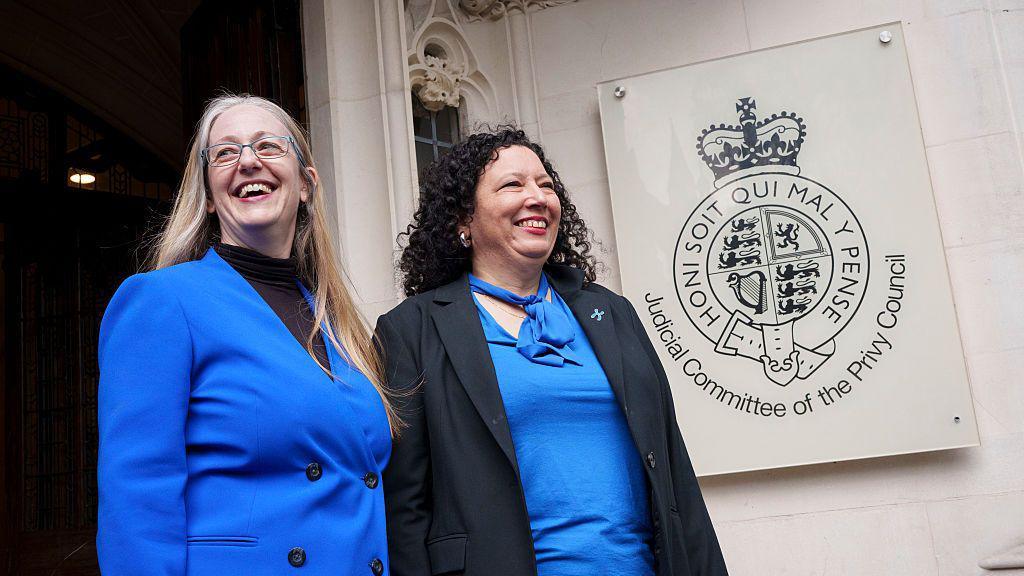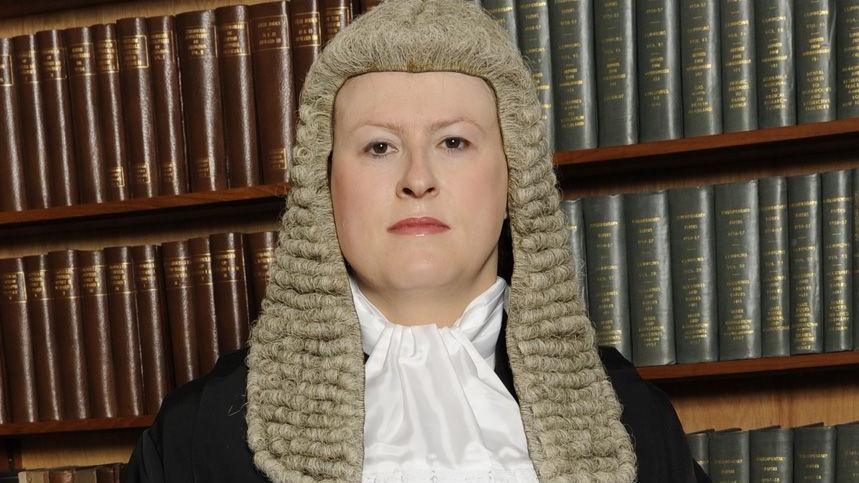People could be asked to prove biological sex under new EHRC code

The EHRC has issued updated guidances following a landmark Supreme Court ruling
- Published
Sports clubs and hospitals could ask for a person's birth certificate if there is "genuine concern" about their biological sex under an updated Equality and Human Rights Commission (EHRC) code of practice.
The regulator published updates to the code on Tuesday in light of a Supreme Court ruling that a woman is defined by biological sex under equalities law.
Other changes include guidance that trans people can be excluded from sport "when necessary for reasons of safety or fair competition".
EHRC chairwoman Baroness Kishwer Falkner said the changes, which will be subject to a six-week public consultation, were intended to satisfy a "demand for authoritative guidance" after the ruling.
The EHRC, a public body which enforces the Equality Act 2010, issued a code of practice to public services and businesses on how to comply with the law.
The regulator began redrafting its code after the Supreme Court ruled in April that the terms "woman" and "sex" in the 2010 act "refer to a biological woman and biological sex".
Shortly after that ruling, the EHRC published interim guidance intended to "highlight the main consequences of the judgment", including on the provision of single-sex toilets.
That said trans women "should not be permitted to use the women's facilities" in workplaces or public-facing services like shops and hospitals, with the same applying for trans men using men's toilets.
On Tuesday, the regulator published, external a more comprehensive update to the code and began a public consultation, which it said had been extended to six weeks, from two, due to high levels of public interest and input from a range of organisations.
It says people can be asked to confirm their birth sex in some circumstances if it is "necessary and proportionate" for a service provider to "know an individual's birth sex to be able to discharge their legal obligations".
Any request should be made in a "sensitive way which does not cause discrimination or harassment", it said.
The commission adds that if there is "genuine concern about the accuracy of the response to a question about birth sex, then a birth certificate could be requested".
As some trans people who have obtained a Gender Recognition Certificate may also have an amended birth certificate, the draft code says any further enquiries about biological sex at birth should be "made in a proportionate way which is discreet and sensitive" in the "unlikely event" they are needed.
The code says: "Where obtaining information on birth sex is not necessary and proportionate, asking a trans person about their birth sex may risk unjustifiably interfering with their human rights...
"Therefore, care should be taken, particularly by public authorities, that this is only done where necessary and justified.
"Discrimination or harassment could occur if, for example, individuals are asked about their birth sex in a way which may require them to disclose this information in public, or if the language or manner of a request is rude, combative or offensive."
Elsewhere, the draft guidelines say a service provided only to women and trans women or only to men and trans men "is not a separate-sex or single-sex service" under equalities law, and could amount to unlawful sex discrimination against those of the opposite sex who are not allowed to use it.
In a statement published alongside the draft updates, Baroness Falkner said: "People with protected characteristics should never be discriminated against or harassed when using a service.
"Where services are provided on a single-sex basis, that needs to be done in a way which is consistent with the law, which protects the rights of all service users and which ensures everyone is treated with respect and dignity.
"It's vital that service providers know what they need to do to comply with the law, and that service users have confidence that every provider is doing so."
Related topics
- Published16 April

